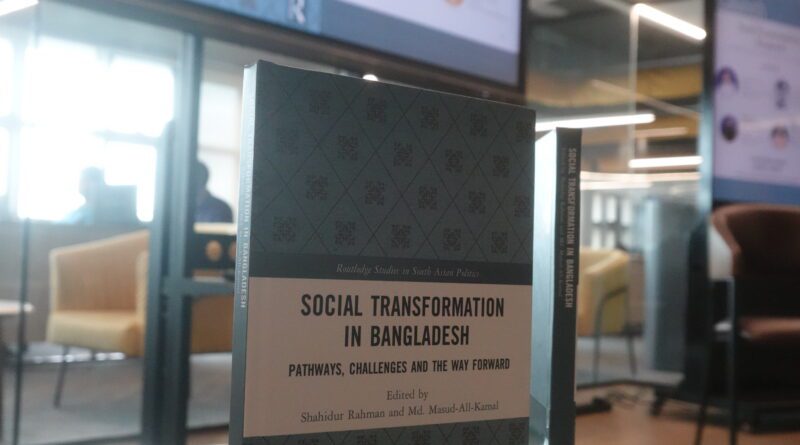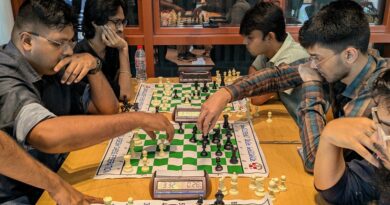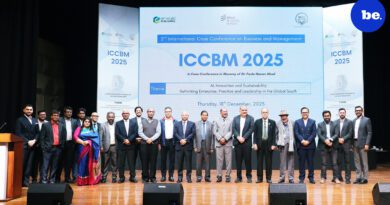Uncovering the book: Social Transformation in Bangladesh
On 21st August, the Department of Economics and Social Sciences (ESS) facilitated the launch of the book Social Transformation in Bangladesh: Pathways, Challenges and the Way Forward, co-edited by Dr. Shahidur Rahman (Professor, ESS) and Dr. Masud Kamal (Associate Professor, University of Chittagong). The interactive session was held at the Learning Stairs of the Ayesha Abed Library, also marking the debut of this venue.
Dr. Rahman discussed his intention to create a sociology textbook relevant to Bangladeshi students and contexts. However, for marketing purposes, he broadened the subject to the social transformation of Bangladesh, a country that defied expectations in the neoliberal era. For the twelve chapters, they gathered eighteen authors from different disciplines, and the entire process took four years. Dr. Kamal explained the book’s argument that society is under constant reconfiguration. Each chapter explored the foundations, expected challenges and implications of different transformative spheres. Dr Wasiqur Rahman Khan (Chairperson, ESS) moderated the session.
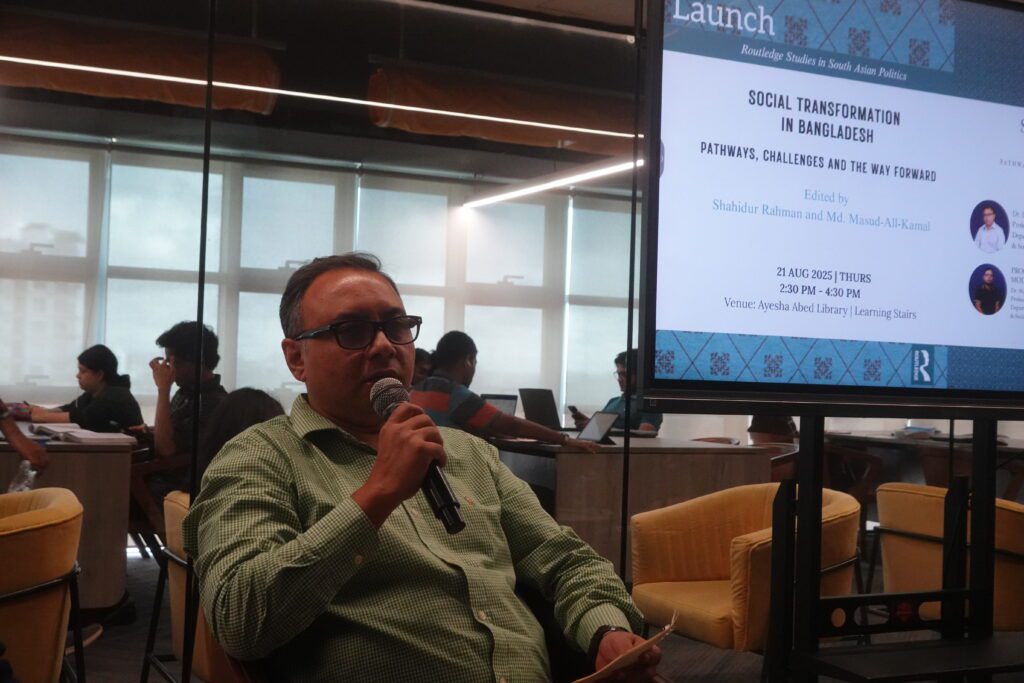
Picture Credit: Rishov Aditya
Meheri Tamanna (Senior Lecturer, ESS) discussed her chapter, Neoliberal Restructuring and the Precarious Urban Poor in Dhaka City. ESS alumni Md. Fardeen Kibria and Mohammad Hasib Emran discussed their chapter The Rise of YouTube and Its Influence on Major Aspects of Life in Bangladesh. Dr. Syed M. Hashemi (Professor, GenEd) was present as the main discussant, talking about the book and highlighting a few limitations.
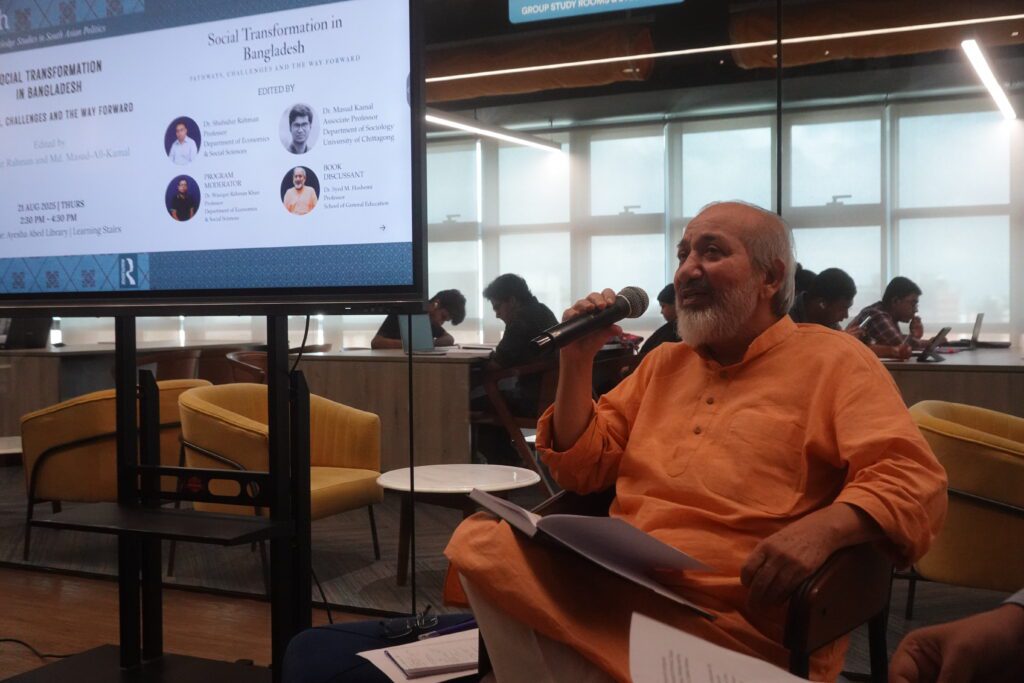
Picture Credit: Rishov Aditya
Among the attendees, Nadya Tamrin (Junior, ESS) stated, “Since the July Revolution, I have tried to understand Bangladesh’s background and hoped for guidance; this would help students bridge the gap between past and present.”
After an insightful question-and-answer session, Dr. Khan ended the program by encouraging Dr. Rahman to proceed with his initial plan for a textbook, saying, “The Bangladeshi textbook is not considered universal, yet the American one is? When we speak of decolonisation, we start here.”
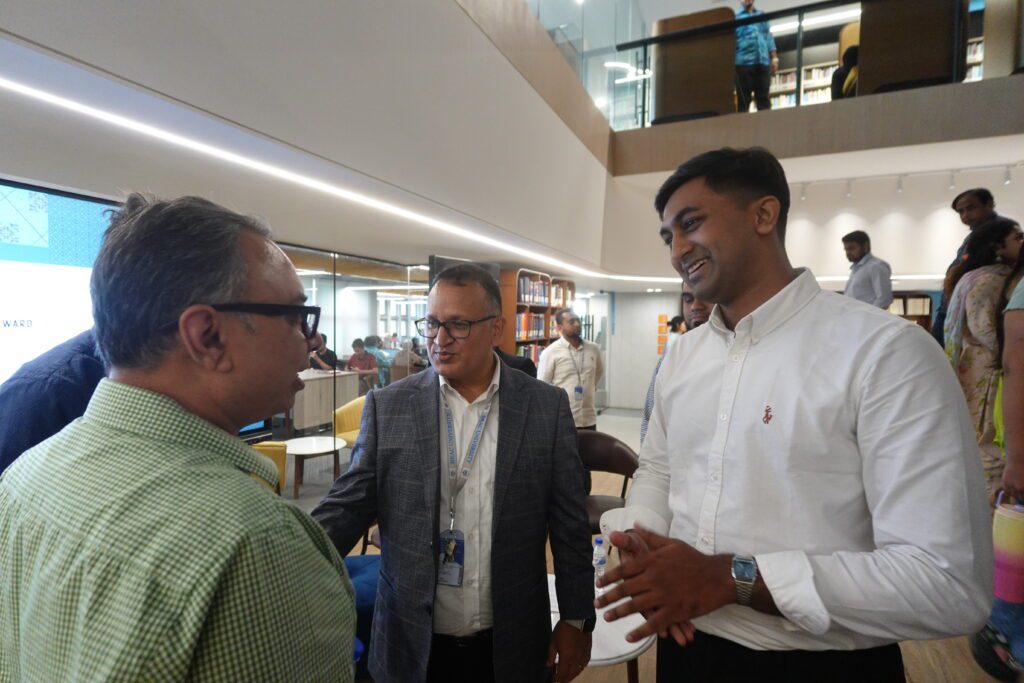
Picture Credit: Rishov Aditya

